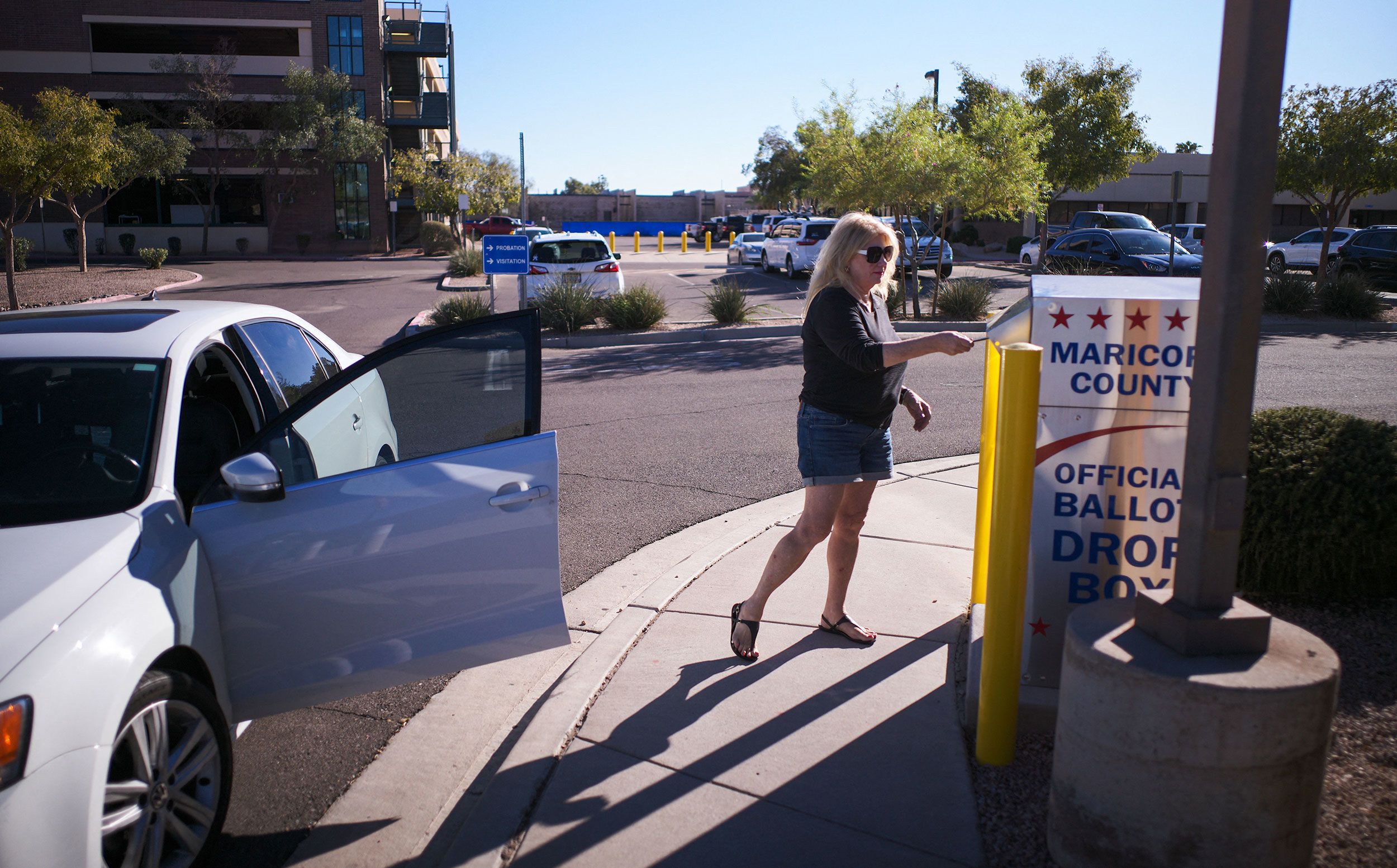In a significant turn of events, Republican leaders are urging their supporters to vote by mail in the upcoming presidential election, while simultaneously backing lawsuits and legislation that could potentially complicate the counting of these votes.
The Republican National Committee (RNC) and the Mississippi Republican Party are currently suing the Magnolia State to terminate its practice of accepting absentee ballots up to five business days post-election. Meanwhile, in the battleground state of Pennsylvania, the RNC and other Republican groups have successfully challenged the counting of absentee ballot envelopes missing a date.
Republican lawmakers have also defended restrictions on ballot drop boxes in Ohio, Georgia, and Florida, which are now being contested by left-leaning groups. In North Carolina, a new law, advocated by Republican lawmakers, eliminates the previous three-day grace period for accepting most mail-in ballots.
Despite these legislative and legal attacks on early voting, the GOP leadership is promising a robust program to persuade Republicans to submit their ballots early, either in-person or by mail, through a campaign called “Bank Your Vote.”
This dual strategy highlights the delicate balancing act the party faces: trying to close the gap on the Democrats’ mail-in voting advantage while appeasing the party’s presumptive presidential nominee, Donald Trump, who continues to claim without evidence that mail-in voting corrupts elections and contributed to his 2020 defeat.
Trump recently pledged at a Wisconsin rally to “secure” the elections by restricting voting to a single day. He and House Speaker Mike Johnson are expected to make a “major” announcement on election integrity at Trump’s Mar-a-Lago club and residence.
Michael Whatley, Trump’s newly appointed chairman of the Republican National Committee, has outlined an aggressive approach to election litigation, focusing not just on mail voting, but also on broadening the use of identification to cast a ballot, challenging the upkeep of voter rolls, and pushing back on local jurisdictions that have allowed noncitizen voting.
Republican attorneys have filed a variety of lawsuits across the country, targeting different types of election rules. The aim appears to be as much about generating headlines that suggest the party is addressing Trump’s unfounded warnings of mass voter fraud as it is about securing court wins that could impact how the 2024 election is conducted.
As they prepare for another litigation-heavy election cycle, Republicans are hoping to placate the Trumpian base by showing they are actively combating alleged fraud. The willingness to bring more marginal legal cases reflects the increased funding being allocated to election litigation.
The RNC has announced partnerships with more than 20 law firms to file litigation in key states and has recruited in-state election integrity political directors and counsels in 13 battleground states. The party is also working to recruit and train thousands of poll watchers and workers to monitor election activity.
Despite the legal fight against mail voting, recent polling highlights a decline in Republican support for mail-in voting. Just 28% of Republican and GOP-leaning Americans surveyed in January by the Pew Research Center supported allowing any voter to cast ballots by mail if they choose to do so, down from nearly half of this group in 2018.
The RNC has engaged in more than 80 election-related cases in this cycle, challenging voting policies they claim are unfair to them, while also defending election rules passed by GOP legislatures from lawsuits from the left.
The legal focus on non-citizen voting aligns with efforts by Republicans to make immigration a central issue of the 2024 campaign. In New York City, the RNC successfully challenged a law allowing some 800,000 noncitizens to vote in local elections – as long as they are legal permanent residents of the United States.
In Nevada and Michigan, recent RNC lawsuits have centered on claims that the voter registration rolls in key counties in each state are “suspiciously high” and seek to force election officials there to cancel voter registrations ahead of this year’s elections.
However, it appears unlikely that these cases will result in major purges before the November election, given the slow pace of litigation and federal law prohibiting mass removals 90 days before an election.
Contributions to this report were made by CNN’s Ariel Edwards-Levy and David Wright.

